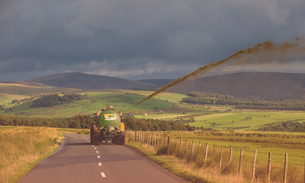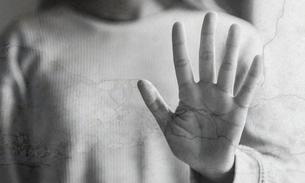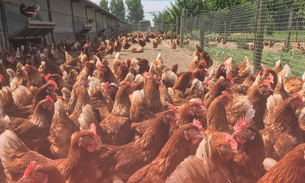
Investigative journalism in a digital age
Iain explained that he would not be addressing post-modernist arguments about the inevitable relativism of truth, but rather focus on the practical effects of the digital age on public awareness of what was happening in the world.
But first, he outlined the role of the Bureau of Investigative Journalism. Set up with £2 million from the David & Elaine Potter Foundation, the BIJ aims to bolster investigative journalism in the UK while seeking a financial model to make such activity sustainable. Its award-winning work has prompted or contributed to a number of recent public interest stories, such as work with Wikileaks on the Iraq War Logs, the Panorama programme on Public Pay Rates or a report on Drone Warfare that received international coverage. The Bureau’s activities fall into four sections, namely Human Rights, Corporate Corruption, Health and Open Society. Their output has been taken up by many different outlets and media as well as being self-published on www.thebureauinvestigates.com .
Iain then considered the significance of the “digital age”: its impact, its innovations and its inspiration.
There has been much discussion of the “crisis” in investigative journalism due to the impact of digital media. To some extent this is just part of a crisis in traditional journalism as a whole.
The proliferation of new internet-based media: blogs, online newspapers, Facebook, and so on – and the ease of content reproduction has resulted in a decline in revenue (from both sales and ads), reflected in a continuation of the long-term decline in newspaper sales, with only a small percentage of original material even in most serious papers – implying far less money and investment for investigative journalism (always an expensive activity with its labour intensity and inevitable large number of dead-ends). At the same time the costs of this activity have increased – think of the cost of libel risk, for example.
Meanwhile developments such as computer games, Twitter and celebrity culture have contributed to a reduced attention span of the readers or viewers.
Iain suggested that this contributed to a basic problem for democratic power – the widening gap between the language of power and the language of the people – and hence for investigative journalism, which is about the analysis of power. On the one hand the language of power becomes more complex and impenetrable – increased obligations for “transparency” have not resulted in “clarity” but in large volumes of technical jargon or evasive euphemisms.
On the other, the language expected of journalism has become less complex, posing a major challenge for the investigative journalist with a complicated story to present, however significant. As a consequence a large part of the public conversation is shaped by a growing PR industry, often acting under the cloak of legal privilege.
But, argued Iain, the technical innovations of the digital age also have a very positive side for investigative journalism.
Today’s journalists are masters of their own output, instead of having to rely on a large technical support team.
The proliferation of output channels provides new “multi-platform” opportunities for journalists to spread public interest stories more widely and rapidly, sometimes with the benefit of instant reporting or corrective feedback from the public. There are also new tools for speeding up some kinds of investigation, such as automated “web-scraping” and software to find links in the “document cloud”. Wikileaks itself provided another new opportunity, of course, and still constitutes a vast resource.
The wide ownership of powerful unobtrusive cameras and cameraphones is another example. On the other hand, these new opportunities bring new ethical challenges, continued Iain.
Notable cases include the phone hacking scandal, the changes to Wikileaks by journalist Johann Hari, and the opportunity for footage produced by journalists working on their own to be discredited. More generally, the need for speed is the enemy of accuracy, and the reliance on PR material as a source of news has obvious penalties.
Turning to the future, Iain introduced the concept of the “digital long tail”: along with a small amount of output that achieves very high circulation – the “hits”.
Digital media lends itself to a large volume of niche content in many different channels, with the growing feasibility of multi-lingual or multi-national output for stories.
The investigative journalist can exploit this and even make the most of the 30-second attention span if links from one channel to another can be achieved. A Twitter feed can draw attention to a news clip which in turn links to a magazine article or documentary. “Story-telling is the key” to encouraging people to follow those links, Iain suggested.
As well as making the best use of hyper-links, the investigative journalism needs to use the techniques of “viral marketing” and “gonzo journalism”. In short, digital tools must be used to repackage content in many ways to reach different audiences.
For investigative journalism to succeed, Iain concluded, investment is needed. Journalists need to develop their own “followers” and reputation, using Facebook, Twitter etc.
When much content is free, specialist and exclusive output can find a niche market. A good example of this is the Swedish paper “Svenska Dagbladet”.
The emphasis is on original, agenda-setting stories, reflected by the fact that 40% of the content and two thirds of the front pages are pre-planned rather than reproducing the same breaking news that other outlets use.
The result of this approach has been a 12% increase in sales while rivals have declined. With the development of easier ways of making small payments for internet content, the same approach could support online publication.
The Chairman noted that: ‘this talk was one of the most interesting we have had as a group and the audience was unanimous in applauding Iain’s courage and commitment in his work.
It is clear that good journalism is one of the most important safeguards of society’.




